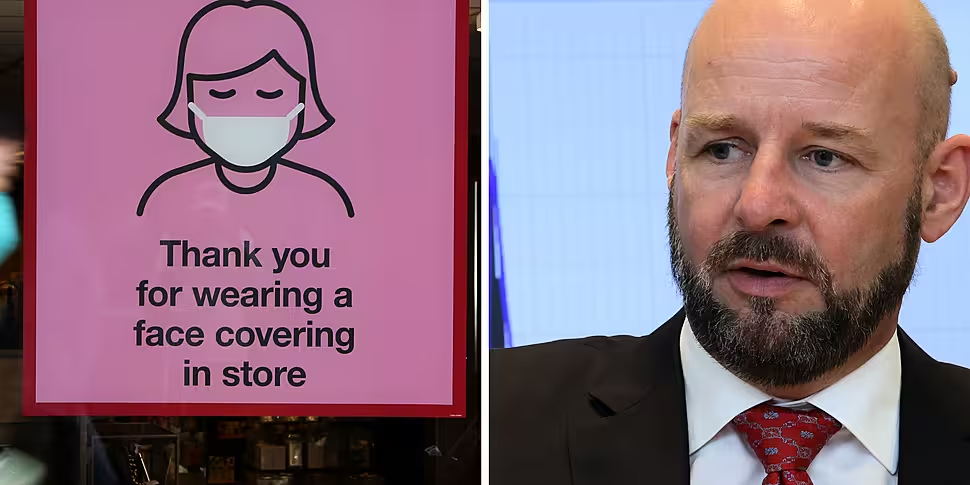NPHET's Professor Philip Nolan says remaining COVID-19 restrictions will ease soon, but the need for mask-wearing and other public health measures will remain.
He says current case numbers likely won't stabilise until at least mid-September, and it will take weeks until they start to decline.
The chair of the NPHET Irish Epidemiological Modelling Advisory Group says it's vital to give the vaccines time to take full effect.
He was speaking as the five-day moving average of new cases remains above 1,900, while over 300 people are being treated in hospital.
NPHET will meet later this week to look at the current situation, with Cabinet expected to meet on Friday to sign off on a roadmap for the further easing of restrictions.
It comes as anger is growing within the entertainment industry after footage emerged of crowds of hurling fans gathered on the streets around Croke Park ahead of yesterday's All-Ireland.
Professor Nolan told Newstalk Breakfast the "very high" levels of vaccine uptake means Ireland's now in a position where officials do need to come up with a plan to ease restrictions.
He said: “To a certain extent, the current case numbers were expected. What they’re showing us is, quite simply, that the vaccination programme isn’t finished yet.
“The good news is over 90% of adults have their first dose at this point - but the first dose offers you very little protection, especially against the Delta variant.
“The number that matters is around 75% of the adult population are 7-14 days after completing their vaccine regimen - and therefore have achieved the maximum level of immunity.”
It means a quarter of adults are still either unvaccinated or not yet fully vaccinated, despite the extremely high vaccination levels in recent weeks.
Masks
Professor Nolan said he understands why people forget or “get casual” about measures such as mask-wearing - but he's appealing to people to stick with it.
He said: “We’re going to be living with some level of mask-wearing.
"Easing of restrictions is going to happen… but the advice or requirement to take some of those simple measures - which cost very little but protect us greatly - is going to remain.”
He said it's "more than good manners" to wear a mask on the likes of public transport.
Professor Nolan said case numbers are likely to "stabilise" at high levels, and will “take some time” before they drop significantly - likely weeks after the peak of the current wave.
He said: “We would be seeing tens of thousands of cases a day right now... if it wasn’t for vaccines. Because vaccines are doing such a good job, it’s a long and slow wave that we’re getting.
"We should see case numbers stabilise in mid-September or early October - depending on literally how much social contact we have between now and then.”
Professor Nolan says NPHET hasn’t agreed on its latest advice yet, but he believes there should be room to start a 'cautious' easing of remaining restrictions as case numbers level off.
He said: “We really need not only to get very high levels of vaccination, but also need to give a week or two for the vaccines to take full effect.”









